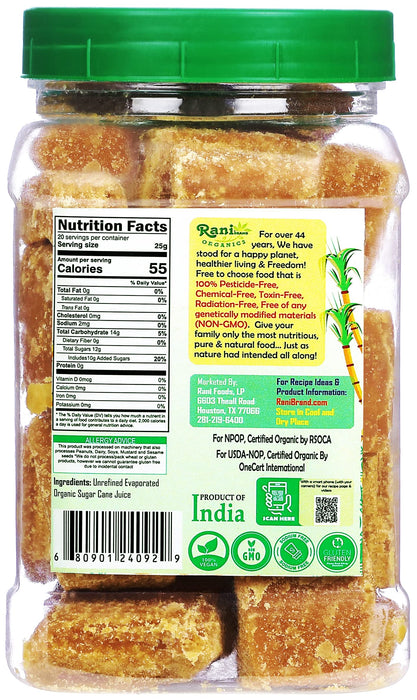Discovering Sugarcane Products: Versatile Benefits and uses
The exploration of sugarcane products discloses an impressive array of applications that extend well past the familiar realm of sweeteners. As we analyze the multifaceted contributions of sugarcane, one might question just how these varied uses can improve industries and way of lives in a quickly developing globe.
Overview of Sugarcane
Although sugarcane is typically associated mostly with sugar manufacturing, it is a flexible plant with an abundant history and many applications. Grown in exotic and subtropical regions, sugarcane grows in well-drained dirts and cozy climates, contributing dramatically to numerous economies worldwide. This perennial lawn, coming from the genus Saccharum, can grow to heights of approximately 4 meters, showcasing its durable nature.
Beyond its main role in sugar extraction, sugarcane works as an essential resource for various spin-offs. The coarse deposit, called bagasse, is utilized for creating bioenergy and as a raw product for making paper and eco-friendly products. In addition, molasses, a by-product of sugar refining, is rich in nutrients and generally utilized in pet feed and fermentation procedures.
Sugarcane additionally plays a significant role in typical medicines and cultural methods in numerous regions, highlighting its relevance past commercial use (sugarcane product). Furthermore, with the increasing concentrate on sustainable agricultural techniques, sugarcane is being discovered for its possibility in biofuels and carbon capture, placing it as a key player in the shift towards renewable resource resources. Hence, the flexibility of sugarcane expands much past the confines of sugar production
Sugarcane in Food Products


Beyond sweeteners, sugarcane is the resource of energy-rich products such as jaggery and panela, which are typical raw sugars made use of in lots of societies. These items not only sweeten foods however additionally impart distinct flavors and dietary advantages.
Sugarcane juice, a rejuvenating beverage appreciated in several exotic areas, showcases the plant's adaptability. It is usually eaten fresh or fermented into alcoholic beverages like rum.
Furthermore, sugarcane fibers, referred to as bagasse, are sometimes utilized to produce food packaging materials, emphasizing the environmental benefits of sugarcane processing. In general, sugarcane's contribution to foodstuff is diverse, boosting tastes, supplying nutritional value, and playing a considerable duty in cooking traditions around the globe.
Industrial Applications of Sugarcane
In various industries, the adaptability of sugarcane expands far beyond its culinary applications. Sugarcane works as a critical resources in the manufacturing of biofuels, particularly ethanol, which is significantly made use of as a sustainable energy resource. This biofuel is derived through fermentation and purification procedures, offering a sustainable choice to nonrenewable fuel sources and adding to a reduction in greenhouse gas discharges.

Furthermore, the sugarcane market has actually located applications in drugs, where its components are utilized in the formulation of various medicinal products. The all-natural substances extracted from sugarcane exhibit antimicrobial and antioxidant buildings, improving the efficiency of particular medications.
Finally, sugarcane is essential to the manufacturing of a variety of chemicals, including glycerol and natural acids, which are vital for numerous industrial procedures. These applications highlight sugarcane's substantial duty in advertising commercial sustainability and advancement.
Environmental Benefits of Sugarcane
The multifaceted applications of sugarcane not just enhance industrial procedures but likewise contribute dramatically to ecological sustainability. As a renewable energy, sugarcane cultivation plays an important duty in carbon sequestration, absorbing substantial quantities of co2 from the environment. This process assists alleviate environment explanation adjustment by decreasing greenhouse gas concentrations.
Moreover, sugarcane byproducts, such as bagasse and molasses, provide eco-friendly alternatives to traditional products. Bagasse, the fibrous deposit after juice extraction, can be utilized as a biomass fuel, decreasing dependence on fossil gas and promoting cleaner power resources. In addition, molasses can be changed into bioethanol, additionally sustaining lasting energy campaigns.
Sugarcane farming likewise promotes biodiversity and dirt health. Sustainable farming practices, such as intercropping and plant turning, boost dirt fertility and reduce erosion. Additionally, the crop's deep root system help in water retention, therefore supporting local ecological communities and boosting durability versus drought.
Health And Wellness Advantages of Sugarcane
Rich in natural sugars and necessary nutrients, sugarcane supplies many wellness benefits that make it a useful enhancement to a well balanced diet plan. Its high fiber material aids in food digestion, advertising digestive tract wellness and stopping irregularity. Additionally, sugarcane is a resource of antioxidants, which deal with oxidative stress and anxiety and might minimize the risk of persistent illness.
In addition, sugarcane juice is recognized for its hydrating homes, making it a superb beverage choice, specifically in hot climates. The all-natural sugars present in sugarcane offer a fast power increase, helpful for athletes and view it those involved in exercises. It additionally consists of essential vitamins and minerals, such as vitamin C, magnesium, potassium, and calcium, which add to general wellness.
Studies suggest that sugarcane might assist manage blood sugar level levels, making it a better sugar for people with diabetes mellitus when eaten in small amounts. Furthermore, its anti-inflammatory residential properties can sustain liver wellness and help in detoxification.
Conclusion
In verdict, sugarcane becomes an extremely flexible plant with considerable payments to numerous sectors. Its diverse applications in foodstuff, industrial uses, and environmental sustainability emphasize its value. The by-products of sugarcane, such as bagasse and molasses, assist in environment-friendly techniques, while its health advantages enhance general well-being. The complex nature of sugarcane not only supports economic development yet also advertises sustainable development, highlighting its value in modern society.
Although sugarcane is commonly linked largely with sugar production, it is a flexible crop with a rich background and many applications.Past its main duty in sugar removal, sugarcane offers as this link an essential resource for different spin-offs. Primarily recognized for creating sugar, sugarcane is transformed into granulated sugar, brown sugar, and molasses, each serving unique culinary purposes.Rich in all-natural sugars and essential nutrients, sugarcane supplies various wellness benefits that make it a valuable addition to a well balanced diet plan. The all-natural sugars present in sugarcane provide a quick power increase, beneficial for athletes and those involved in physical tasks.